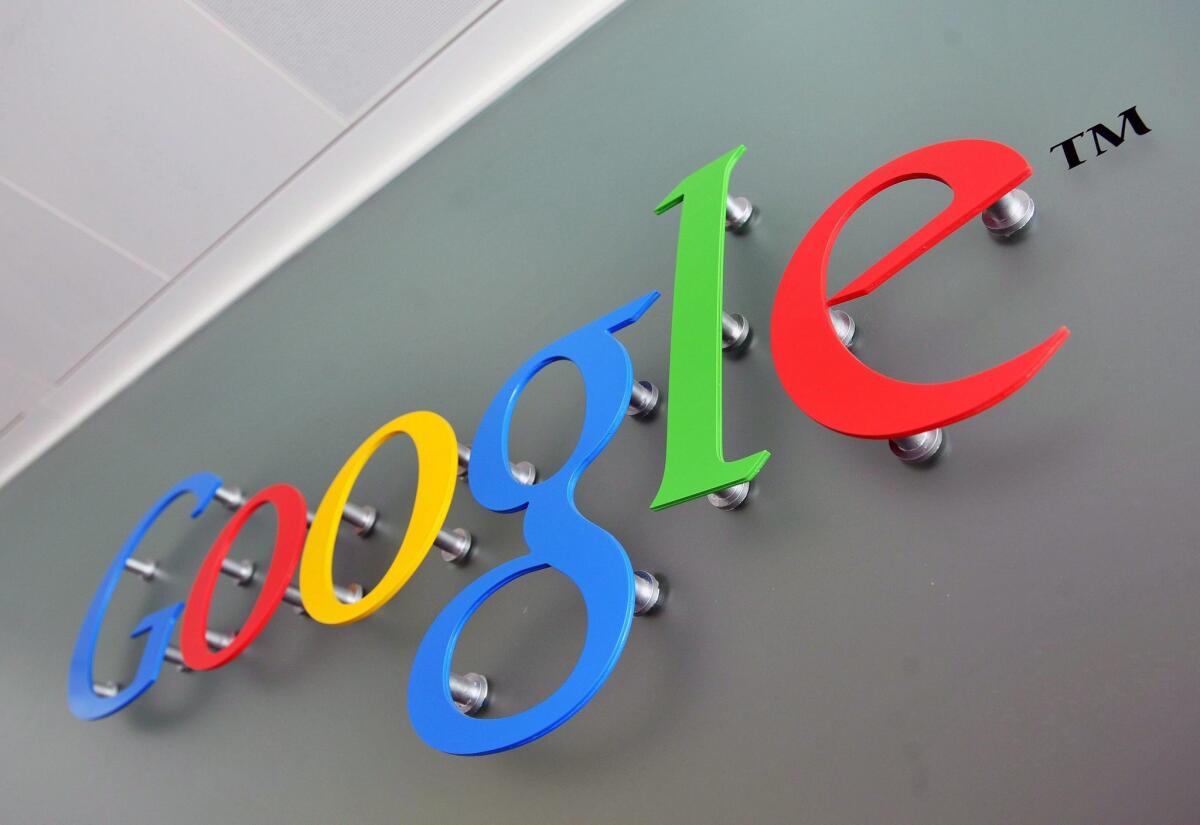Google braces for global ‘right to be forgotten’ privacy ruling

- Share via
Google is bracing for another landmark privacy decision at the European Union’s top court, five years after a “right to be forgotten” ruling forced it to delete links to personal information on request.
The EU Court of Justice is set to rule Tuesday on the U.S. tech giant’s follow-up fight with a French data-protection regulator over whether the right should apply globally and where to draw the line between privacy and freedom of speech.
The Alphabet Inc. unit is challenging the French authority’s order to remove, on demand, links on all its platforms worldwide if they lead to websites that contain out-of-date or false information that could unfairly harm a person’s reputation. Judges may also clarify what links can stay online in the public interest.
For Google, the fate of the internet is at stake. The 2014 ruling already forces it to offer different search results in Europe than in the rest of the world. The French regulator, CNIL, says Google should purge those results globally. The company and its supporters, including press freedom groups, have warned that internet freedom would be brushed aside if less democratic parts of the world embraced the same policy.
Creating a global right to be forgotten “would create a serious clash with U.S. concepts of freedom of speech,” and it could also be used by other states to “suppress search results on a global basis,” according to Richard Cumbley, a lawyer at Linklaters in London who is not involved in the case.
The EU court is hard to predict. The initial ruling shocked Google by rejecting its arguments that the search engine was merely a neutral pathway for serving up information. The decision effectively left it to Google to decide whether a link that someone asked to be deleted led to something that was “no longer relevant.”
Since 2014, Google has had to weigh nearly 850,000 requests to remove links to some 3.3 million websites. Its staffers have taken on a semi-regulatory role to strike a balance between what information should stay public and what should be removed.
The court now will have to spell out how widely Google should remove the links. Should it pull links viewed in one country or across Europe? Must it strip them from local sites such as France’s google.fr or also on the global google.com domain — and what should it do if they’re accessed from France, Europe or elsewhere?
Since 2016 the company has used “geoblocking” — a location-specific tool — to filter Google search results to Europeans so they won’t see information a person in their country wants to limit.
The EU court will also have to weigh whether Google can refuse to remove some information that might be in the public interest. It will advise French courts over a dispute on deleting links over a personal relationship with a public-office holder and an article mentioning the name of a Church of Scientology public relations manager.
Judges in London and Paris have been sympathetic to efforts to suppress unflattering information. Last year a London court told Google to remove news reports about businessmen’s criminal convictions, in line with an English law that aims to help people put past crimes behind them. Paris judges also told Google to reduce the visibility of stories about a former chief financial officer fined for civil insider-trading violations.
Mountain View, Calif.-based Google and France’s CNIL declined to comment before the ruling.
Privacy has become a battleground for internet giants in Europe. Google has faced numerous privacy investigations there, including scrutiny of contractors listening to audio from its digital home devices and data processing for ads. The company was fined more than $55 million by France’s CNIL this year over lack of transparency for its privacy policy and for failing to correctly processing user data for ads. It was one of the first penalties levied under powerful new data-protection rules.
Google’s importance as the leading search engine in Europe has led to an EU declaration that it dominates the European market. The company is separately challenging billions of dollars’ worth of antitrust fines at the same EU courts in Luxembourg.






